News & Media
Africa's elusive quest for peace
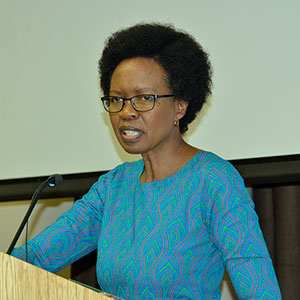
Adv Mojanku Gumbi, Founder of Mojanku Gumbi Advisory Services and Former Special Advisor to South African Former President Thabo Mbeki
On 16 October 2019, Prof Mandla Makhanya hosted the sixth lecture for 2019 of the Principal and Vice-Chancellor’s African Intellectuals Project. The theme of the lecture was "Africa and her perennial, elusive quest for peace – a critical examination". The African Intellectuals Project is an initiative aimed at sparking "scholarly" reflections over and around some of the pertinent challenges currently facing us as a nation and as a university.
Advocate Mojanku Gumbi, Founder of Mojanku Gumbi Advisory Services and Former Special Advisor to South African Former President Thabo Mbeki, delivered the keynote address at the seminar. Setting the tone for Gumbi, Makhanya traced the lack of peace on the African continent to the setting in of colonialism and added that there is a direct link between colonialism and violence. "A history of colonial rule promotes either oppositional communal identities, communal divisions of labour, ethnic-based stratification, animosity between indigenous and non-indigenous populations, or some combination of the four," said Makhanya.
"Many would agree that this is what manifests in most countries on the continent, where the largely British colonial strategy of divide-and-rule encouraged ethnic enclaves, some of which have been the sources of conflict," he added. "The phenomenon of dividing indigenous peoples to rule them effectively with little resistance from them has been eloquently theorised by Mahmood Mamdani who argues that the first step was to define the indigenous people, categorising them into ethnic enclaves. In that way, the colonialist could drive wedges between the indigenous peoples, who began to see themselves no longer as having a common plight but as varied ethnic groups with distinct identities and, therefore, different interests," emphasised Makhanya.
He argued further that his examination of how colonial power was practised was, however, not sufficient for us to arrive at the conclusion that it was colonialism that gave rise to later post-independence violence and lack of peace.
The violence of colonialism
Makhanya argues that the brutality of colonial rule is so negative that it destroys the inner soul of the colonised, taking out their humanness and leaving them as "…a shell, a shadow of man, completely defeated, drowning in his own misery, a slave, an ox bearing the yoke of oppression with sheepish timidity." Thus, the black person would not hesitate to take the life of another black person. The black person would not hesitate to destroy the property of another black person. The black man does not hesitate to violate the black sister. He does so because he sees no person; he sees a "thing" that deserves no respect but only violation. "It is this violence of colonialism that refused to die when Africa was decolonised," he said.
Conflict prevention
In her keynote address, Gumbi – a human rights lawyer, who has worked as both an Attorney and Advocate with over 30 years’ experience in private practice, public policy development and African conflict resolution – emphasised the importance of conflict resolution. "We need to up the ante and work hard to prevent conflicts from arising and to facilitate lasting comprehensive political settlements of existing conflicts," she said and continued by emphasising that there is still a lot of work to be done to promote peace building and post-conflict rehabilitation in South Africa. She further warned that it is important to keep abreast of the political atmosphere. "Ignoring political restlessness comes at a price. We all have a responsibility to stay committed to building a peaceful and resilient society," she said. She stressed that it is everyone’s social responsibility to build sustainable pathways to peace, safeguard development gains, and avoid the kinds of crises that result from violence and conflict.
Gumbi accentuated that today’s crises are often protracted and cross-border, and that they are compounded by transnational challenges such as rising inequality, societal exclusion, fractured institutions, illicit financial flows, and violent extremism among other factors. "To address inequalities and exclusion and prevent future crises, it is important to ensure that institutions are more inclusive and accountable, and that peacebuilding and development strategies are sustainable, conflict-sensitive, locally-owned and gender-responsive," she stressed.
* By Tshimangadzo Mphaphuli, Senior Journalist, Department of Institutional Advancement.
Publish date: 2019-10-22 00:00:00.0

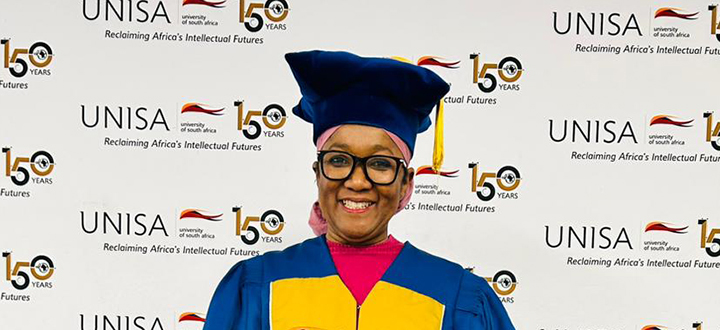 Unisa community engagement initiative targets school underperformance
Unisa community engagement initiative targets school underperformance
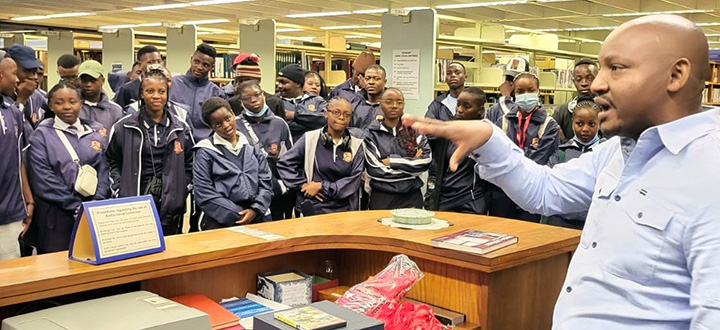 Library tour introduces learners to the wonderful world of Unisa
Library tour introduces learners to the wonderful world of Unisa
 Unisa Radio volunteer wins prestigious community journalism award
Unisa Radio volunteer wins prestigious community journalism award
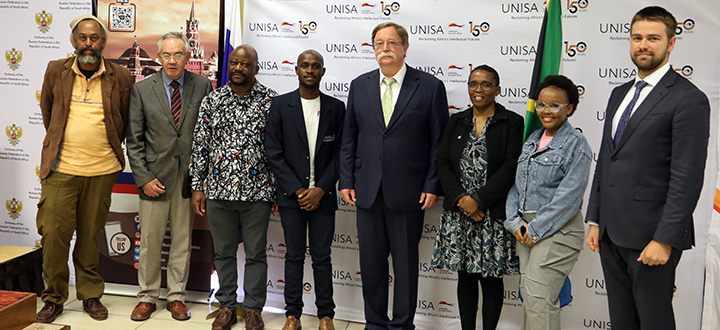 Unisa's student leadership engage with Russian ambassador
Unisa's student leadership engage with Russian ambassador
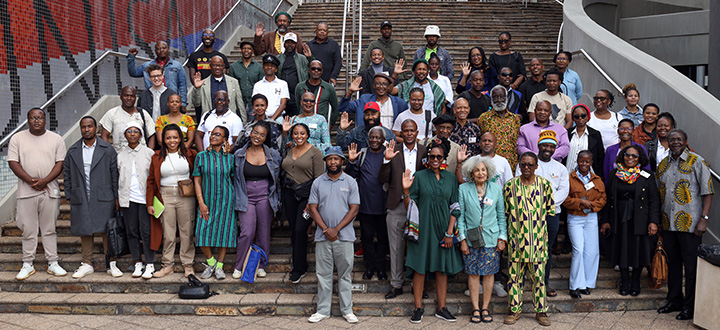 Re-igniting and re-imagining Pan Africanism, Afrocentricity and Afrofuturism in the 21st century
Re-igniting and re-imagining Pan Africanism, Afrocentricity and Afrofuturism in the 21st century